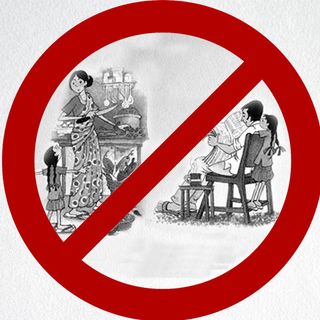
Money Can Buy Happiness, But Materialism Can Ruin a Marriage
Three years ago, the CEO of a small, credit card processing company in Seattle shocked the business world by announcing that over the course of the next year, he would reduce his USD 1 million salary to USD 70,000 —

Three years ago, the CEO of a small, credit card processing company in Seattle shocked the business world by announcing that over the course of the next year, he would reduce his USD 1 million salary to USD 70,000 — and raise all employee salaries to match it. He made the move after reading a report that pegged USD 70,000 as the income at which people evaluate their life with general positivity.
“It’s not about making money,” Dan Price said of his move at the time. “It’s about making a difference.”
A year later and a half later, the company shared data that appeared to support Price’s decision: With their higher income, employees were saving more for retirement and moving closer to work (shortening commute times). More workers were having children, and fewer were leaving the company. By most counts, employees were happier and the company was better off. Clearly, money can buy happiness.
Which begged the question: does more money buy more happiness?
More money, more problems?
A recent study has found, it does — but not infinitely.
“That might be surprising, as what we see on TV and what advertisers tell us we need would indicate that there is no ceiling when it comes to how much money is needed for happiness,” said Andrew T. Jebb, the study‘s lead author and doctoral student of psychology at Purdue University. “But we now see there are some thresholds.”
After reviewing data from more than 1.7 million people across 164 countries, Jebb’s team found the peak point for the same kind of life positivity that drove Price to standardize his employees’ pay, is the ideal income of USD 95,000 per annum. Jebb noted that figure applied to individuals only; for families, the amount would likely be higher, he said. He also said it was a world average, and that the peak point varied widely across regions; in some less developed countries, the salary associated with peak life evaluation was lower.
Earning beyond USD 95,000 a year, however, saw life satisfaction tempered by a number of things. Further increments tended to be associated with reduced positivity and a lower level of emotional well-being.
“At this point, they are asking themselves, ‘Overall, how am I doing?’ and ‘How do I compare to other people?'” Jebb said. “The small decline puts one’s level of well-being closer to individuals who make slightly lower incomes, perhaps due to the costs that come with the highest incomes. These findings speak to a broader issue of money and happiness across cultures.”
More money, more (marriage) problems
One casualty of these diminishing returns may well be a marriage. It’s no secret a lack of money is often a reason why couples fight, but the flip side is true, too: the pursuit of money can also cause conflict.
“We know that materialism can lead to poor money management and that leads to debt and strain, but financial factors may not be the only issue at play in these situations,” said Jason Carroll, a professor of marriage and family studies at Brigham Young University, and an author of a recent study exploring the link between marital satisfaction and materialism. “Materialism is not an isolated life priority; as the pursuit of money and possessions are prioritized, it appears that other dimensions of life, such as relationships, are deemphasized.”
Carroll’s study found higher levels of materialism — measured by how strongly participants agreed with phrases like “Having nice things today is more important to me than saving for the future” and “Having money is very important to me” — are associated with a decreased value for marriage and less relationship satisfaction. One of the possible causes, his team suggested, is that materialistic pursuits trump other life priorities, creating a scarcity of time for relationship-building activities like communication, conflict resolution and intimacy. Or, materialism may simply be the result of a worldview that sees happiness as an outcome of possessions and wealth, rather than of relationships.
Regardless, it’s clear that money and money-mindedness can only get individuals and couples so far.
“Money is only a part of what really makes us happy,” Jebb said, “and we’re learning more about the limits of money.”
Liesl Goecker is The Swaddle's managing editor.
Related


From Teachers to Textbooks: Gender Stereotypes in Indian Schools
